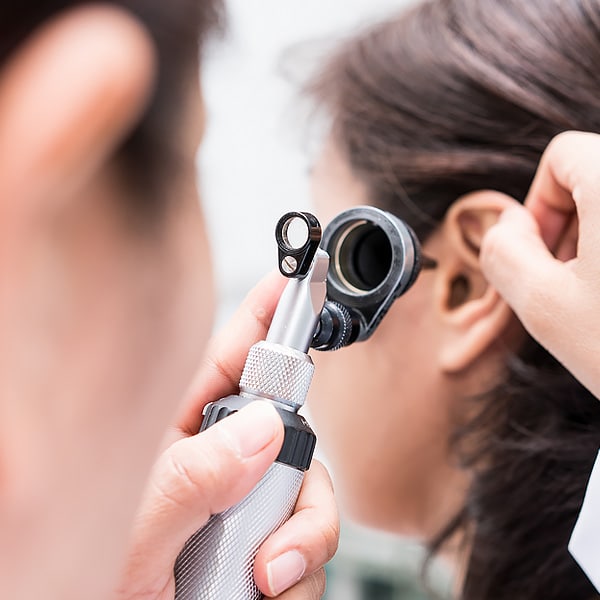Hearing is something we often take for granted until it’s taken away from us. Hearing affects many aspects of our lives that many don’t even realize until their hearing starts to go. Hearing loss is not only something that comes with age; but other things like medications, illnesses, or genetics can cause a loss of hearing as well. Hearing loss in adults can come on suddenly or gradually and can affect relationships, work, and other daily life activities. Normal hearing is 25 or fewer decibels (dB) in adults and less than 15dB in children. Profound hearing loss is typically 95dB or more. 100dB is generally considered complete deafness.
A variety of tests can be done to test hearing and identify the causes of hearing loss. They can be as simple as using rubbed fingers and a whispered voice, or more involved like electrophysiological or acoustic reflex testing. More complex tests include pure-tone audiometry, speech audiometry, tympanometry, electrophysiological tests, and acoustic reflex testing.
When hearing loss occurs, the first step is to determine the cause. Some causes are reversible but some, unfortunately, are not. If the hearing loss is reversible, steps can be taken to remove or treat the influencing factors such as environmental factors, obstruction, or infection. When hearing loss cannot be reversed, hearing aids should be considered. A hearing aid can restore the sound to your ear to allow you to better participate in conversations with others at work, home and at social events. Dr. McDonald can refer you to the audiologists at Whispers Hearing Center to be fitted for a hearing aid. Hearing aids can dramatically increase a person’s quality of life and happiness. A link between hearing loss and dementia has been shown in some studies. We don’t know yet if early intervention with hearing aids can help slow the onset of dementia in these patients.
